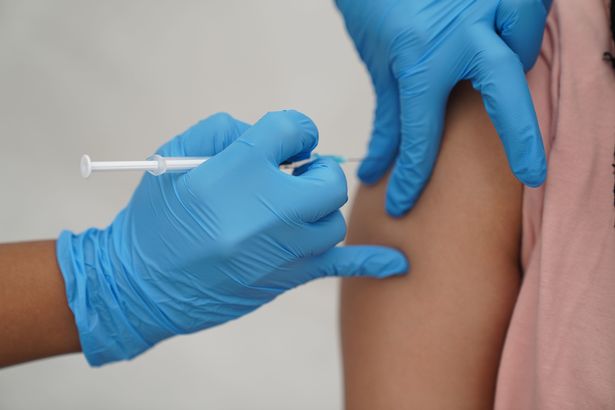Almost 90 per cent of Covid cases in England are now one of the new NB.1.8.1 and XFG variants Covid cases are on the rise as autumn sets in(Image: Getty Images)
Covid cases are on the rise as autumn sets in(Image: Getty Images)
Experts have warned that a recent rise in the number of Covid cases and hospitalisations in the UK is “worrying, so early in autumn”.
The latest figures from the UK Health Security Agency (UKHSA) show that weekly Covid cases rose by 22 per cent in the week before September 24, climbing from 2,012 to 2,459.
Covid hospitalisations have also risen. In the week starting September 15, the overall weekly hospital admission rate for the virus was 2.73 per 100 000 people. This was up by 60 per cent from a month prior, when the rate was 1.71 per 100 000 in the week starting August 18.
Experts have said this uptick in the number of cases is ‘worrying’, with health bosses urging those eligible to come forward for vaccinations.
“A combination of return to work and school after the summer holidays, cooler weather – more indoor mixing in poorly ventilated spaces – and waning immunity are contributing to the increased spread of the virus,” Lawrence Young, virologist at Warwick University, told the BMJ.
“The increased trend in cases of infection and hospitalisations, although still low, are worrying so early in the autumn period.”
 The new Stratus Covid variant is now the dominant strain in England(Image: Getty Images)
The new Stratus Covid variant is now the dominant strain in England(Image: Getty Images)
It comes as almost 90 per cent of the Covid cases recorded in England recently were one of the two new variants: NB.1.8.1 and XFG, dubbed ‘Nimbus’ and ‘Stratus’, respectively.
The latest UKHSA data shows 77 per cent of cases were classified as XFG or one of its spin-off variants, while 11 per cent were classified as NB.1.8.1.
According to Young, the Nimbus variant is more infectious than Stratus, but mutations on the Stratus virus help it evade antibodies generated by previous Covid infections and vaccinations. “Both these features contribute to the increased spread of these variants,” he told the BMJ.
The UKHSA says current data does not indicate that these variants lead to more severe illness than previous Covid variants.
However, Amanda Doyle, NHS England’s primary care director, said, “It’s concerning to hear flu and covid-19 cases are already creeping up ahead of winter.”
Symptoms of the new Covid variants
As new strains of the Covid virus have emerged, its symptoms have changed over time. Recent variants are associated with more cold-like symptoms, but the UKHSA says people may also have a fever, continuous cough, shortness of breath, tiredness, body aches, headache, sore throat, blocked nose, loss of appetite, nausea, diarrhoea, or change in sense of taste or smell.
 Health officials have urged those eligible to get a Covid jab(Image: PA)
Health officials have urged those eligible to get a Covid jab(Image: PA)
Experts have said the Stratus variant is also commonly associated with a hoarse or raspy voice, while Nimbus is thought to cause ‘razor blade sensation’ – a severe sore throat.
The UKHSA urged those with symptoms of a respiratory infection, such as Covid, and a high temperature to “avoid contact with vulnerable people and stay at home if possible.”
While there are no Covid restrictions in the UK, those with symptoms who cannot stay at home are urged by the UKHSA to do the following:
- Wear a well-fitting face covering made with multiple layers, or a surgical face mask
- Avoid crowded places such as public transport, large social gatherings, or anywhere that is enclosed or poorly ventilated
- Take any exercise outdoors in places where you will not have close contact with other people
- Cover your mouth and nose when you cough or sneeze; wash your hands frequently with soap and water for 20 seconds or use hand sanitiser after coughing, sneezing and blowing your nose and before you eat or handle food; avoid touching your face
